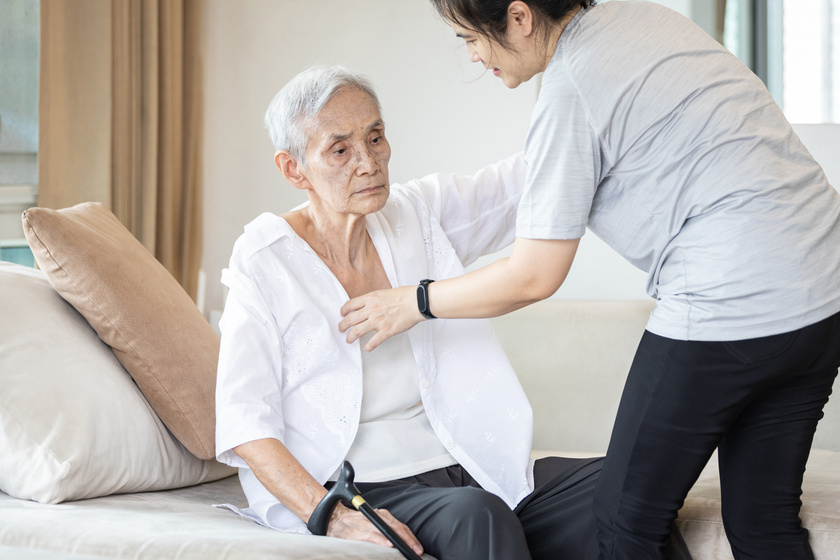Helping the person you are caring for with their personal hygiene while also making sure to uphold their dignity requires the utmost sensitivity and skill. However, it is not at all impossible. Here, we have put together a series of things you can do to help your aging loved one with dementia maintain their personal hygiene.
Personal Hygiene of Dementia Patients
Showering, dressing, and grooming are all daily activities that we would do without a second thought as part of our routine. However, for dementia patients, remembering their daily routine can be overwhelming or challenging for them to complete on their own. If this is someone you know, observe the clothes they wear and whether it is the same outfit for several days running. Do they have cuts on their face from shaving? Or do they generally appear unkempt? These are all signs that indicate your aging loved one has started to face problems with maintaining their personal hygiene.
Why is Daily Routine Challenging for Dementia Patients?
Dementia and Alzheimer’s disease can mean that someone could forget that they have to change their clothes regularly and wash their hair or face. They may not remember that they have not done so today or even the day before. Some may also be experiencing mobility problems that restrict their ability to get in and out of showers or get dressed.
What to Do to Help Dementia Patients Maintain Personal Hygiene
- Talk to them with sensitivity. It may not be the easiest of conversations but it has to be done. Some may feel embarrassed so you have to phrase your words properly to uphold their dignity during the conversation. Let them know that help is always available to help them better manage their daily living activities like showering, dressing, grooming, and others.
- Simply highlighting the issues could cause more problems so you could try a different approach. Make it sound as though you are the one who intends to pamper them. Let them know that you love caring for them and helping them shower, get dressed, and maintain their personal grooming.
- When helping them to dress, they may ask for advice on what clothes to wear for a special occasion or for specific weather. They may also need guidance on where to locate certain things which you can help by labeling the different drawers and cupboards.
- For older adults with incontinence issues or facing mobility problems, they are more likely to neglect their personal hygiene. You need to think of various ways that can help them complete their daily living activities with more ease. You can recommend incontinence products, get them a mobility aid, and others.
- Help them care for other parts of their body too like their ears, teeth, and nails. All of these areas also fall within the category of personal hygiene.
Personal hygiene is a vital aspect of dementia care as it is integral to the patient’s sense of identity. It also helps patients remain comfortable throughout their day and appear presentable at all times for increased confidence.







